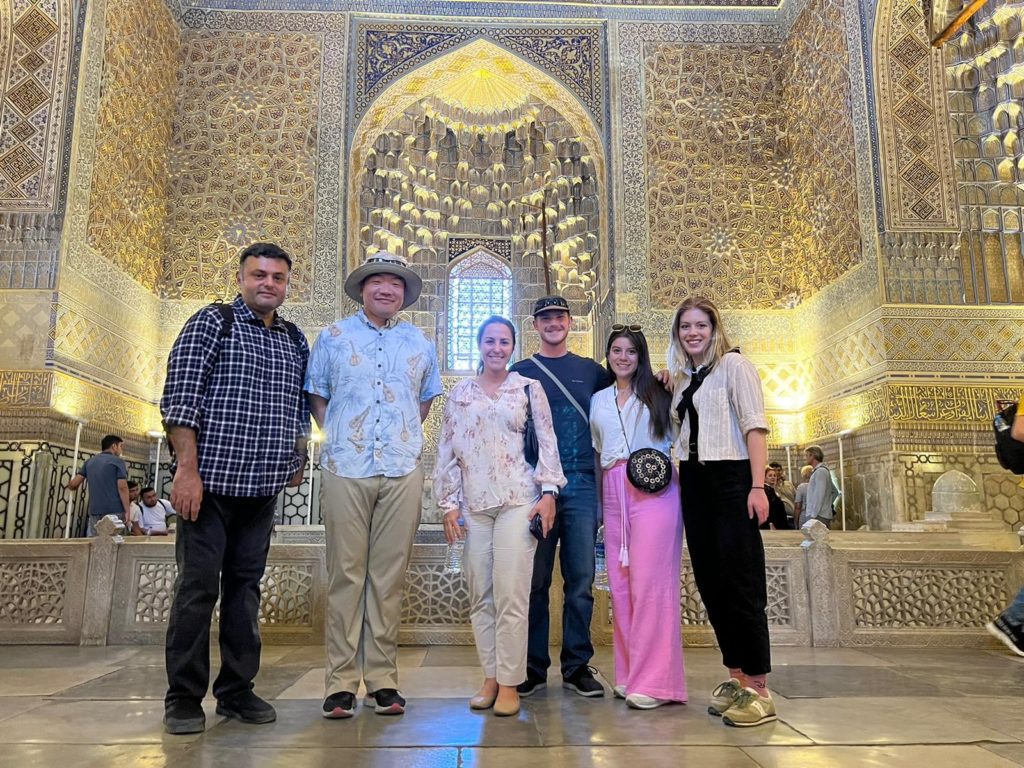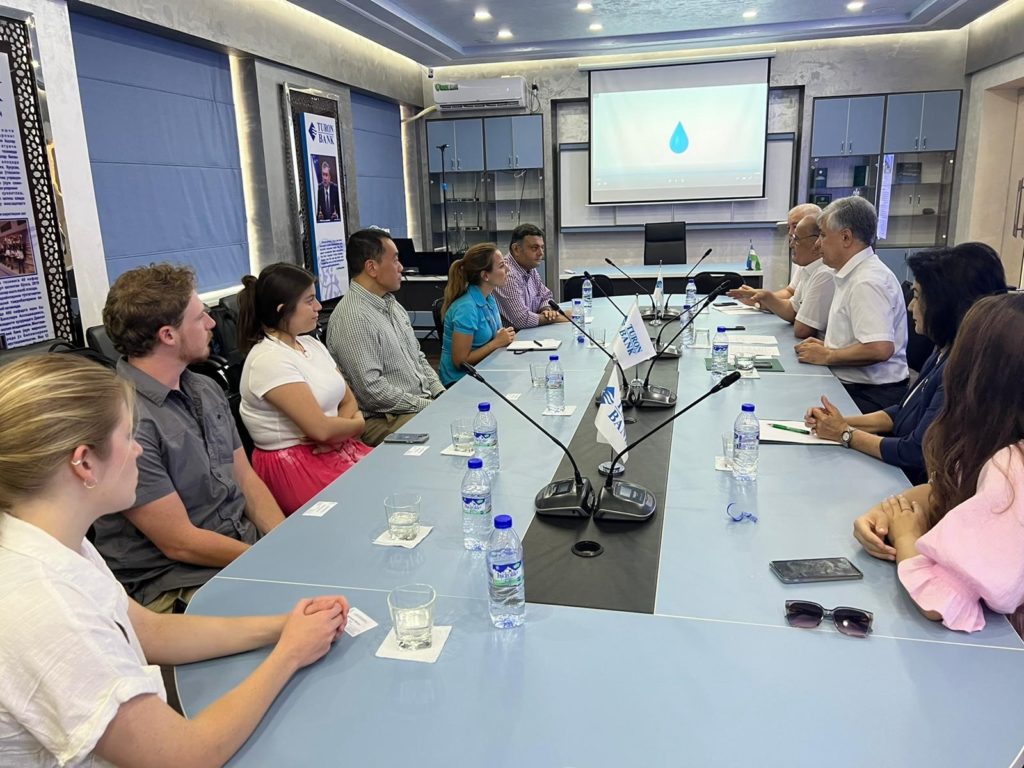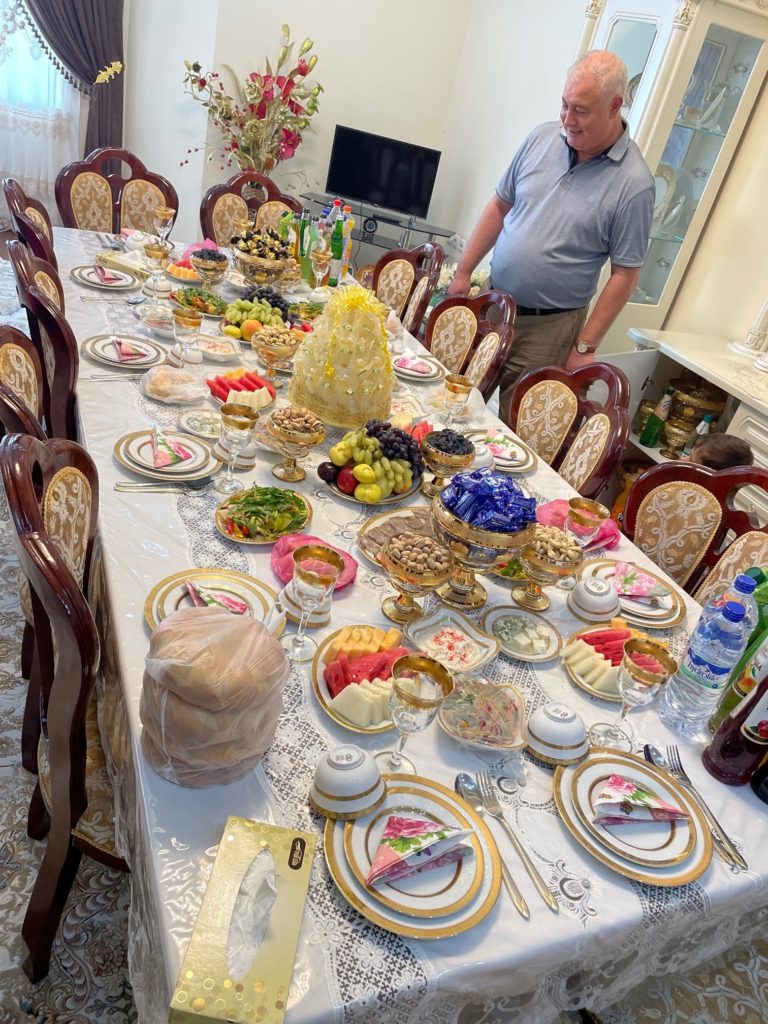Professor Ketul Popat will tell you he grew up in a small city.
Vadodara, India, is a mid-sized city of 2.2 million people. In India, that IS considered small compared with what most U.S. residents consider small, the Colorado State University mechanical engineering professor says.
That’s the kind of global perspective that Popat and Professor Pinar Omur-Ozbek, a civil engineering professor, hope to give students through several new courses in the Walter Scott, Jr. College of Engineering.
Popat, who is also director of undergraduate programs for the School of Biomedical Engineering, teaches a biomedical cultural competency course. Students are challenged to look at health care through a global lens, and compare differences.
Consider India, for example, where socialized medicine means 70 percent of the country can’t afford the small medical procedures that Americans take for granted, he said. And herbal medicine and yoga might be considered part of a doctor’s prescribed treatment.

In Kenya, doctors must serve tribal villages that don’t have roads. Contrast that with parts of Brazil, where plastic surgery is commonplace.
“It’s an appreciation for the way things are done differently,” Popat said of the student learning experience. “At the end of the day, the problems are the same and the solutions are going to help people.”
Global water challenges
Omur-Ozbek teaches a global water challenges course that includes students attending virtually from Uzbekistan, a small country of about 35 million people in Central Asia.
Popat and Omur-Ozbek started the school year with a trip to Uzbekistan to visit their counterparts at the top research university, Tashkent Institute of Irrigation and Agricultural Mechanization Engineers or TIIAME.
“Students are engaged and excited for being able to interact with others from the other side of the world and enjoy the learning experience though exposure to different problems and different perspectives,” Omur-Ozbek said.

Also joining the CSU group was DaeSeok Chai, an associate professor in the CSU School of Education in the College of Health and Human Sciences. Chai whose background is on cross-cultural organizational development, presented on cultural competence to help students gain a perspective to communicate across languages and cultures in a distance learning setting. Three environmental engineering students also joined: David Kulish, Mayca Saavedra, and Sofia Zook.
“I thought it would be super interesting to experience a different perspective, and how they respond to water challenges and implement engineering,” said Zook, a senior in environmental engineering. “We spoke to engineers there and what they plan to do with a sea that’s shrinking rapidly. Learning how to communicate with engineers internationally was super valuable in the same way you’re learning how to communicate as a scientist to the public.”
Zook, Kulish and Saavedra are taking Omur-Ozbek’s global water challenges course, which has 18 students from CSU and 18 students from Uzbekistan. The CSU students are largely from Civil and Environmental Engineering with some from the Warner College of Natural Resources. Topics include water resources management, water quality regulations, water scarcity and climate change, and water and wastewater treatment.
“We never think about drinking the tap water – we don’t think about safety of it and having access to it day and night,” said Omur-Ozbek, who is originally from Turkey. “For other parts of the world, you’re not going to have tap water any time of day or night.
“Water is essential for so many activities beyond being a source for tap water,” she said. “We use it for food production, energy production, and for goods production by industry. Its availability and quality is essential for us to sustain our modern life. And lack of water brings complex challenges that require input and effort by all of us: engineers, scientists and beyond.”
Saavedra, who is also an ambassador in the college, knows what it’s like to live in two different cultures. Her parents are Peruvian, so she grew up partly in Peru and in Colorado.
“I think all engineers should have at least one experience with studying abroad,” Saavedra said. “When we think of a problem, we like to get to the solution right away, and we don’t consider culture, religion, what the people want instead of what the people need. Having that outside perspective is key for engineers.”

Collaborating with global partners
Support for the Uzbekistan partnership and trip came from the American Councils for International Education – Central Asia University Partnership Program, known as UniCEN, and the U.S. Department of State. The organizations want to foster ties and increase collaboration among universities in the United States and Central Asia.
On the Uzbekistan trip, the host partner, Abdulkhakim Salokhiddinov, a professor at TIIAME, was gracious enough to stay with the CSU crew at the airport upon arrival and departing the country, Popat said. He also invited them into his home for a “light lunch” that was an 8-foot table filled with food.
“Food is an incredible part of knowing the culture,” Popat said. “Our students were so surprised that people were so welcoming, so giving, and it was sincere. They bought gifts for them, they cooked food. They bought breakfast and other items without expecting anything in return.”